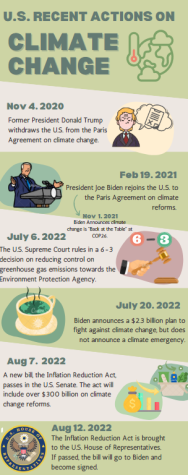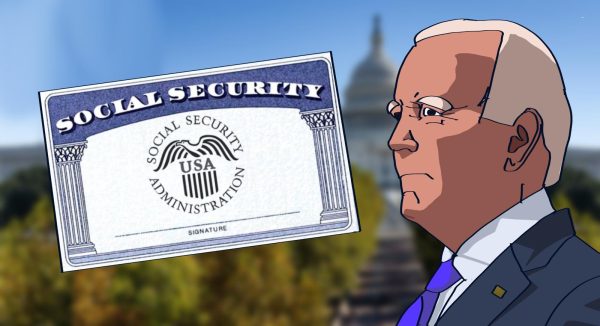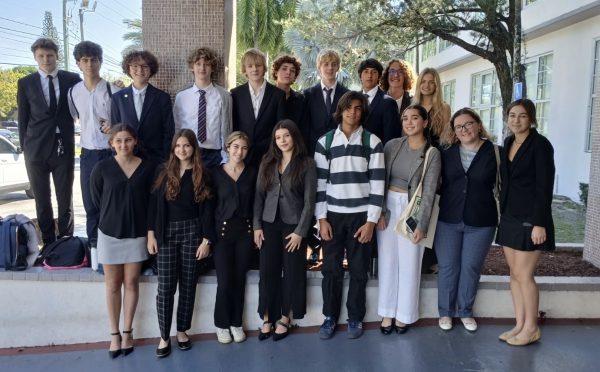A Generation of Debates: Climate Change is One Step Further to Resolution
As the awareness for climate change grows, sophomore Keith Hernandez takes action.
 During a visit to Somerset, Mass., the Biden-Harris Administration unveiled a $2.3 billion plan and executive steps to address the ongoing climate crisis in the United States. Although the climate issues were addressed, President Joe Biden did not declare a national climate emergency with his plan on July 20.
During a visit to Somerset, Mass., the Biden-Harris Administration unveiled a $2.3 billion plan and executive steps to address the ongoing climate crisis in the United States. Although the climate issues were addressed, President Joe Biden did not declare a national climate emergency with his plan on July 20.
This approach comes after many disagreements in the U.S. Congress, where Democrat Sen. Joe Manchin did not support the crisis and instead focused on inflation. Currently, the Senate is evenly divided by both Republicans and Democrats, leading to climate change being vetoed without Manchin’s support.
Within a month of negotiations with Manchin and other progressives, the Inflation Reduction Act, which includes a $369 billion plan on climate change passed in the Senate with a vote of 51-50 as Vice-President Kamala Harris broke the tie in favor of the bill. The bill then moved on to the U.S. House of Representatives on Aug. 12, where the House voted 220-207 in support of the bill.
“I think the Inflation Reduction Act makes an enormous step for the environmentalist movement in this country and serves as a testament to the power of the people who fought for such change. In the political climate, we live in today, where the government often feels stagnant, it gives me hope to see such an important piece of legislation be passed,” senior Marina Devine said.
With the compromised bill reaching its final stamp of approval at the president’s desk, the new rulings include a fee on the emission of methane where oil and gas facilities would begin paying $900 per ton. While the Environmental Protection Agency did not previously have a rule in effect, it is pending for its methane regulation to become finalized by the end of 2022.
The Supreme Court, however, also stepped in on the EPA by a 6-3 judgment, ruling that the Clean Power Plan established by former President Barack Obama’s administration “had exceeded the Agency’s statutory authority.” This decision has led Congress to oversee a more prominent role in how the EPA regulates carbon emissions.

Meanwhile, the bill would also affect some school districts as it proposes $450 million in assistance to help those in “low-income and disadvantaged communities.” Nonprofit school transportation associations could also apply to replace yellow school buses with clean electric ones. While school districts are not allowed to apply, many states and municipalities can pursue this financial aid.
“I feel that this is important because it is an effective option that will help our economy and allow America to thrive from an environmental standpoint, and being a major factor in combating our goals of defeating climate change,” sophomore Keith Hernandez said.
This new law, however, would contradict Biden’s campaign pledge, promising the end of drilling in federal lands. Instead, to win Manchin’s support, he requested that the bill continue leasing oil and gas drilling on public lands. As a result, Biden’s administration is investigating different methods of limiting emissions from the federal oil and gas reserve, keeping gasoline prices low and complying with the Supreme Court ruling.
“Seeing how all conservatives in Congress opposed this crucial bill in all aspects in how the environment affects us is appalling,” sophomore Christopher Arriaza said.
Overall, the U.S. is expected to reduce approximately 40% of emissions by 2030, lowering energy consumption and greenhouse gas emissions while also increasing American energy security.
Your donation will support the student journalists of Coral Gables Senior High School. Your contribution will help us cover our annual website hosting costs.

Entering his fourth and final year with his favorite publication at heart, senior Aaron Rojas has once again secured the prized position of Features Editor...












